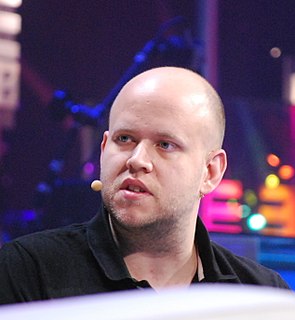A Quote by Conor Oberst
When you look at what people consider success in the music industry, it's just terrible music.
Related Quotes
Some guys that know me from when I was a kid say "My son, oh he's just like your father." It's just a natural part of our lives. But, within the music industry and within the industry of the critiques of music, where it becomes "Ziggy's music is not as good as Bob's music," I don't understand. But I don't really pay much attention to that because I'm just expressing myself.
The lack of quality dance music and the fact that here in the United States, house music is not seen as anything viable by the music industry. I figured that this might be another shot at the industry looking at the possibilities of house music and giving it a little bit more legitimacy than what they give it. It's a host of different things, but it's something that I needed to say musically.
We live in an age of music for people who don't like music. The record industry discovered some time ago that there aren't that many people who actually like music. For a lot of people, music's annoying, or at the very least they don't need it. They discovered if they could sell music to a lot of those people, they could sell a lot more records.




































